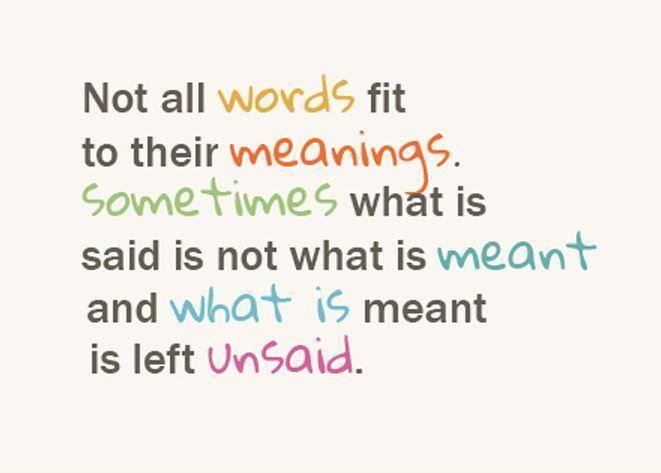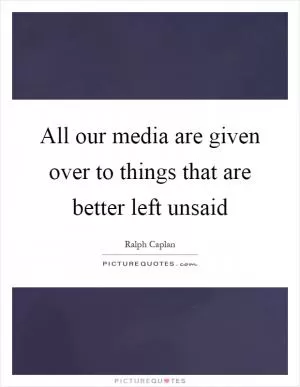Not all words fit to their meanings. Sometimes what is said is not what is meant and what is meant is left unsaid

Not all words fit to their meanings. Sometimes what is said is not what is meant and what is meant is left unsaid
Words are powerful tools of communication, allowing us to express our thoughts, feelings, and ideas to others. However, not all words fit perfectly to their meanings. Sometimes, what is said is not what is meant, and what is meant is left unsaid. This discrepancy between words and their intended meanings can lead to misunderstandings, confusion, and even conflict.One reason why words may not always fit to their meanings is the inherent ambiguity of language. Words can have multiple meanings or interpretations, depending on the context in which they are used. For example, the word "love" can mean different things to different people, and can be expressed in a variety of ways. This ambiguity can lead to miscommunication, as the speaker may intend one meaning while the listener interprets it differently.
Another reason why words may not always fit to their meanings is the influence of emotions and personal biases. Our emotions can color the way we perceive and interpret words, leading us to hear what we want to hear rather than what is actually being said. Similarly, our personal biases can affect the way we understand and respond to words, causing us to misinterpret or misrepresent the speaker's intended meaning.
Furthermore, the limitations of language itself can also contribute to the disconnect between words and their meanings. Language is a human construct, and as such, it is inherently imperfect and limited in its ability to fully capture the complexity of human experience. There are some thoughts, feelings, and ideas that simply cannot be adequately expressed in words, leading to a gap between what is said and what is meant.












 Friendship Quotes
Friendship Quotes Love Quotes
Love Quotes Life Quotes
Life Quotes Funny Quotes
Funny Quotes Motivational Quotes
Motivational Quotes Inspirational Quotes
Inspirational Quotes